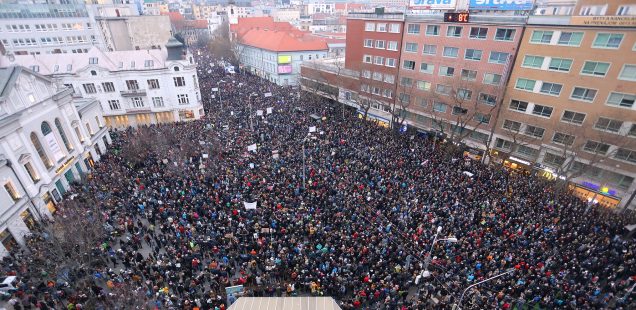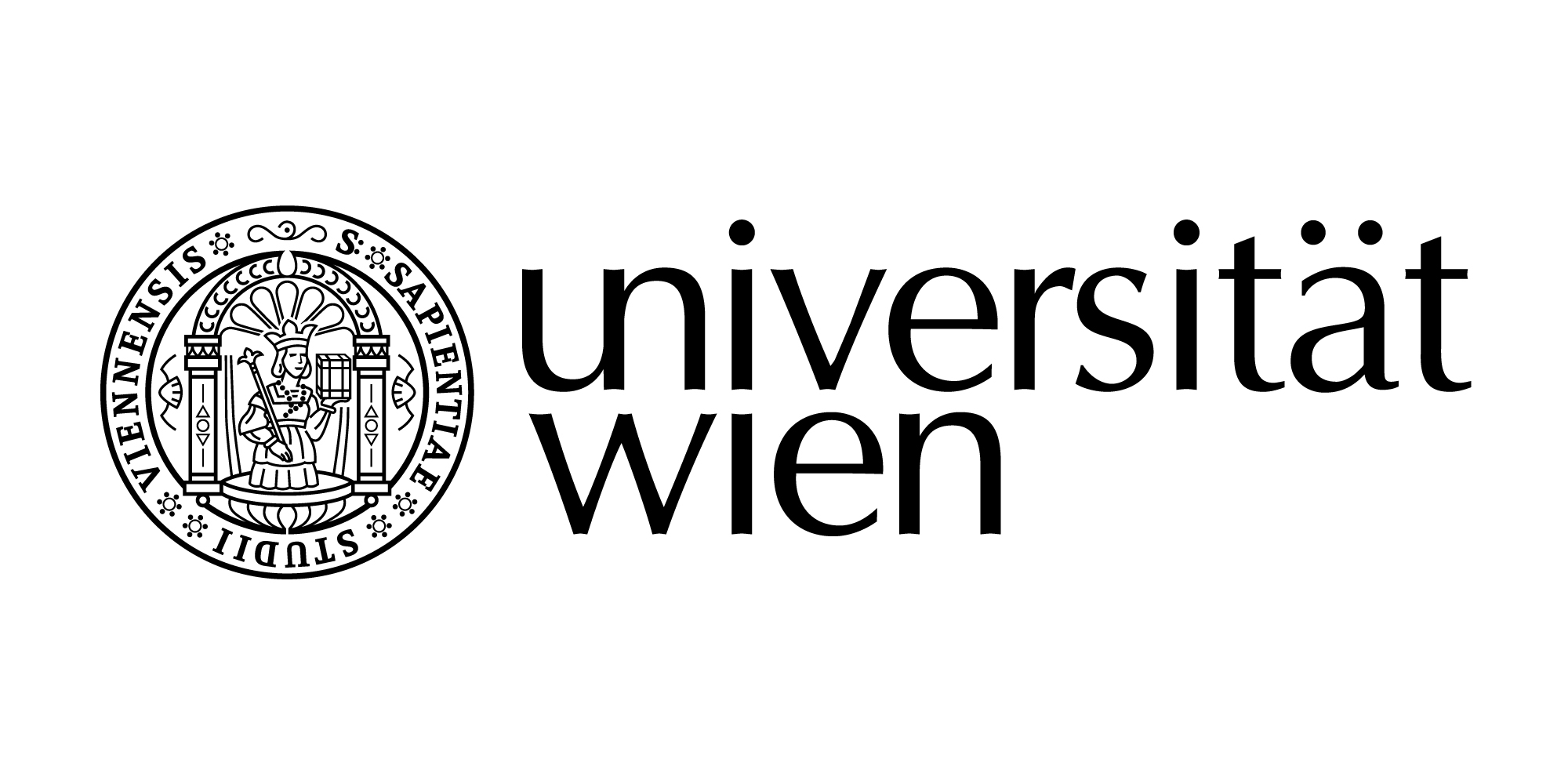
Shaken but Not Broken: Slovak politics after the murder of Ján Kuciak
The shocking murder of the investigative journalist Ján Kuciak (27) and his fiancée Martina Kušnírová (27) has led to public outcry and the demise of the government in March 2018. Four months later, Slovakia still struggles with a crisis of trust towards public institutions. This is intensified by continued efforts from governmental parties to maintain power, based on their unfettered access to resources. The round of civic protests organised by the initiative ‘For Decent Slovakia’ across Slovak cities has shaken the government coalition in an unprecedented way: it has led to the resignation of both the prime minister and the minister of interior, as well as the chief of police. Yet the public remains critical and many consider these changes as merely cosmetic, far from addressing the root causes of the problems afflicting the country in recent months.
Reclaiming “decent politics” back
A symbolic protest drive of roughly 100 farmers driving with their tractors across the country to meet the government representatives and to participate in the eighth round of protest on 22 June was yet another reminder to the government that the civil society is determined to continue fighting for a decent Slovakia. Everyday new developments show the crisis is far from over. The unresolved murder of the journalist Ján Kuciak and his fiancée, new revelations about the misconduct in its investigation, continuing ignorance by the government of problems in key sectors of agriculture, education, environment, as well as politicised law enforcement agencies and justice, keep people of all ages and professions coming to the squares of Slovak cities. Initiated by a group of young people in the capital, the protest movement organiser now consists of around 150 people from all regions of Slovakia, who managed to gather around 150 000 people during the initial protests in March 2018, which have been the largest since the anti-communist demonstrations in 1989.
While some protestors demand early parliamentary elections, the general claim, above all, is the end of politics driven by corruption and extraction of public resources for private gains, curbing the rule of law according to rule by the few and disregarding acute problems of its citizens, be it farmers, teachers, journalists or nurses. While the turnout decreased (from 65 000 participants during the first protest in Bratislava to around 6 000 during the eighth protest), the key demands stay the same: to properly investigate the murder and to restore trust in politics.
Change vs. continuity
None of this has been achieved so far. While the protests provoked the end of the third premiership of Robert Fico, who was replaced by his former deputy Peter Pellegrini, the governmental coalition of SMER-Social Democracy, the Slovak National Party and MOST-HÍD has persisted. This despite several disagreements resulting in resignation of the minister of justice and the minister of culture. At the same time, it remains obvious that Fico still plays a major part in shaping the government’s actions. New nominations, such as the new interior minister Denisa Saková, a former state secretary of Róbert Kaliňák, and the new police chief Milan Lučanský, a close associate of Kaliňák, indicate continuity, rather than substantial change in the government. The grip on key state agencies by governmental parties allows for continuing extraction of the national and EU funds and covering up previous affairs. Moreover, the government continues to fabricate problems, which the country really does not have: a violent coup organised by the Soros-sponsored NGOs, Maidanisation of the protest by the opposition, refugees’ threat, dictate of Brussels or journalists undermining the work of the government. These topics are intoxicating the society with the general feeling of mistrust towards the civic protest movement and of external threat, while portraying the governmental parties as guarantees of social order and security.
Investigation by the suspects
This is while the investigation of the murder of the young couple, found dead in their house on 25 February, still has produced no results. Instead, it has brought many doubts on whether it is conducted impartially and properly, since Kuciak’s investigation of large-scale tax evasion has pointed also at the criminal activities and tax fraud operation by businessmen close to both the former Prime Minister Fico and interior minister Kaliňák. Inappropriate inspection of the crime scene, as well as recent seizure of the telephone of Jan’s Czech colleague Paula Holcová have left many question marks about the course of investigation by the Slovak police. Moreover, the findings of Jan’s investigative work, which were most probably the reason for his death, still have not been addressed properly. The revelations of fraudulent practices in agribusiness by Italian mafia Ndrangheta, closely connected to the governing party SMER-SD, which Jan described in his unfinished article for the news portal Aktuality.sk have been since expanded by an international investigative team. The malpractice in the Agriculture Paying Agency, responsible for the distribution of the European and national funds for land subsidies, has earlier raised concerns of the special delegation of the European Parliament and has been confirmed by the General Prosecutor in May 2018. The ‘parallel reality’ of corruption and organised crime stands in clear opposition to the largely sound legal framework. Yet, no necessary measures were taken so far to redress the situation, in which local farmers are blackmailed and intimidated, while others get subsidies for non-arable ‘concrete land’ or land owned by somebody else. The politicised law enforcement institutions do not help to rectify the situation. Thus, the EU funds remain a major opportunity for corruption and a source for extraction by oligarchs and their political patrons.
Media freedom in danger
Despite the general indignation from the murder of the young journalist both domestically and internationally, the rhetoric of some leading politicians soon got back into the ‘normal’, criticising and ridiculing journalists for their work, especially if it concerns corruption in the highest political echelons. As a result, Slovakia dropped from 17th to 27th place in the 2018 World Press Freedom Index. This is even more worrying when looking at the situation in the national radio and TV broadcaster RTVS since Jaroslav Rezník, the candidate of the junior coalition member Slovak National Party, was elected by the parliament as the new CEO in June 2017. Several changes of the personnel, suspension of the investigative programme, increasing interference and questioning of reporters’ work by the new leadership have resulted in several reporters and editors leaving RTVS – voluntarily or involuntarily. The interest of the Slovak National Party to increase its control through transforming RTVS from public to a state-controlled institution, continuing verbal attacks against journalists and increasingly present legitimation of disinformation used by the politicians raise concerns about the media independence. While so far Slovakia has been praised for sustaining its media freedom, especially in comparison to other V4 countries, this democratic pillar has become endangered too.
Politics without representation
Despite the positive force that the protests have produced, calling for the end of state capture, restoration of media independence and decent politics, for many the protests embody politics ‘without representation’. The civic nature of the protest movement is both its strength and weakness, as it does not have the ambition to transform itself into a political force. Hence, despite the demand for change, the country lacks a viable alternative to the current government. Even though the support for the main party SMER-SD decreased from 40% in March 2015 to 25% in March 2018, it remains on the top of voters’ preferences. The opposition parties, with the leading Freedom and Solidarity, are rather divided and have missed the opportunity to become a stronger challenger to the current government, while the extremist Kotleba’s party keeps 8-10% popularity.
Voting preferences January-June 2018 (% of respondents)
Source: Focus agency
The next two years, which bring a series of four elections (the local government elections in November 2018, the presidential election in early 2019, the European Parliament election in May 2019 and the national parliamentary election in 2020) will be key to determine whether the protest voice finds its political representation’.
The upcoming struggle for power will be equally a test about upholding Slovakia’s liberal and democratic principles. The year of 2018 is greatly symbolic to start redefining the foundations of democratic governance and European values. Slovakia commemorates 20 years after the civil awakening leading to the defeat of Vladimír Mečiar, 30 years after the Candle manifestation, marking the dawning of protests against the communist regime, 50 years after the Prague spring, 70 years since the communist coup, and the 100th anniversary of the first Czechoslovak Republic. In the context of current developments in the V4 and a rising populist and illiberal drive across Europe, this will be a task worth of this ‘anniversary year’.



